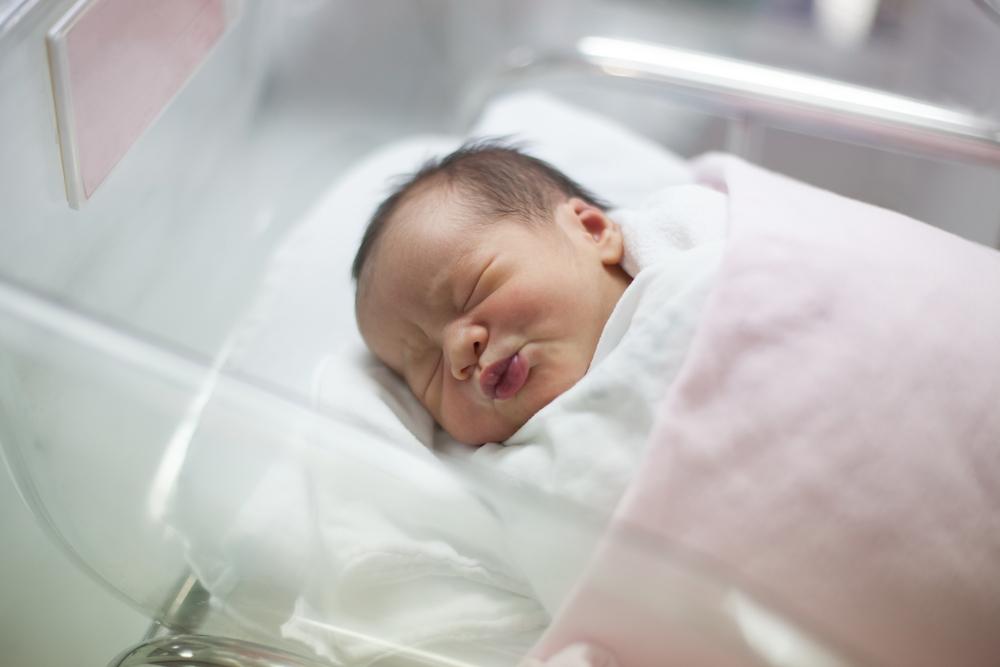C-section babies don’t get exposed to birth canal bacteria. But can science fix that?
An infant in a delivery room.
A baby's microbiome — something that will shape their health for the entirety of their life — starts forming as soon as the birth process begins. And scientists are learning that how exactly a baby is born has a big impact on the the way its microbiome functions.
Human microbiomes are always in flux, influenced by environment and genes. A team of researchers says babies pick up bacteria as they pass through the birth canal. But what about those infants delivered by C-section?
"We still don't know what are the health consequences but it sounds like [they're] adaptive," says Maria Gloria Dominguez-Bello, an assistant professor in the Department of Medicine at the NYU School of Medicine, "Every time you you cheat nature there seems to be a collateral cost that we pay."
Babies who are born naturally pick up bacteria from their mother's birth canal. But babies who are born via C-section don't get their first bout of bacteria from their mothers. Instead, they pick it up from the room they're born in.
"When a C-section baby is born and is not exposed to vaginal fluids what they pick up is skin, like bacteria, human skin," says Dominguez-Bello, "We did a study swabbing the operating room, which normally is incredibly clean … but there are some sites like the walls of the operating room, the ventilation grids, the top of the huge lamps that the surgeons have. If you swab there there is some dust. We did studies of that dust and we demonstrated there are skin flakes there and those flakes have bacteria so we think the built environment is feeding the newborn that is born by C-section."
When C-section babies miss the chance to pick up bacteria from their mother's birth canal, they aren't exposed to some bacteria that help them digest milk. Dominguez-Bello wanted to see if there was a way to restore the missing bacteria.
She and her team conducted an experiment in which they placed a tampon-like gauze in the birth canal of C-section mothers. Then, after the C-section baby was delivered, they exposed the baby to the gauze.
"The first thing we did within the first two minutes after they cut the umbilical was swab the baby's mouth and then the face and rest of the body," Dominguez-Bello says.
As it turns out, the babies exposed to their mother's bacteria with these experiments had much of their microbiome restored.
"We didn't restore completely," Dominguez-Bello says. "We achieved partial restoration. And I don't know if we'll ever restore completely because labor in in the shortest scenarios takes one to two hours."
She adds: "Of course we are not recapturing labor, but we want to see if by at least partially restoring the microbiome, can we also restore health? There are some diseases associated with being born by C-section or early antibiotics. Anything that impacts the microbiomes very early seems to have an increased risk in some of the diseases of the immune system."
"We need a randomized design, a much bigger study — probably thousands of kids, and follow them for at least three years, and then measure obesity, possible asthma, allergies. So it's a huge study, very expensive. We are putting together a proposal but we don't know whether we will get the money," Dominguez-Bello says.
This article is based on an interview that aired on PRI's Science Friday.
Every day, reporters and producers at The World are hard at work bringing you human-centered news from across the globe. But we can’t do it without you. We need your support to ensure we can continue this work for another year.
Make a gift today, and you’ll help us unlock a matching gift of $67,000!
